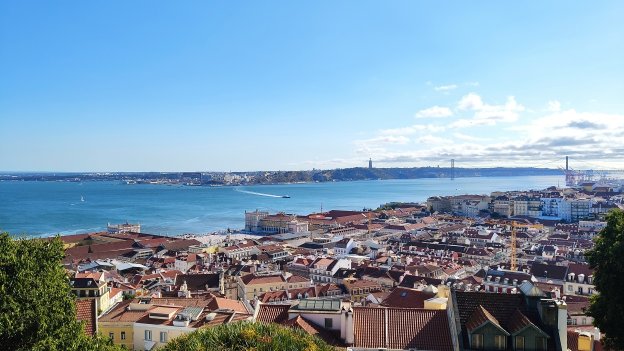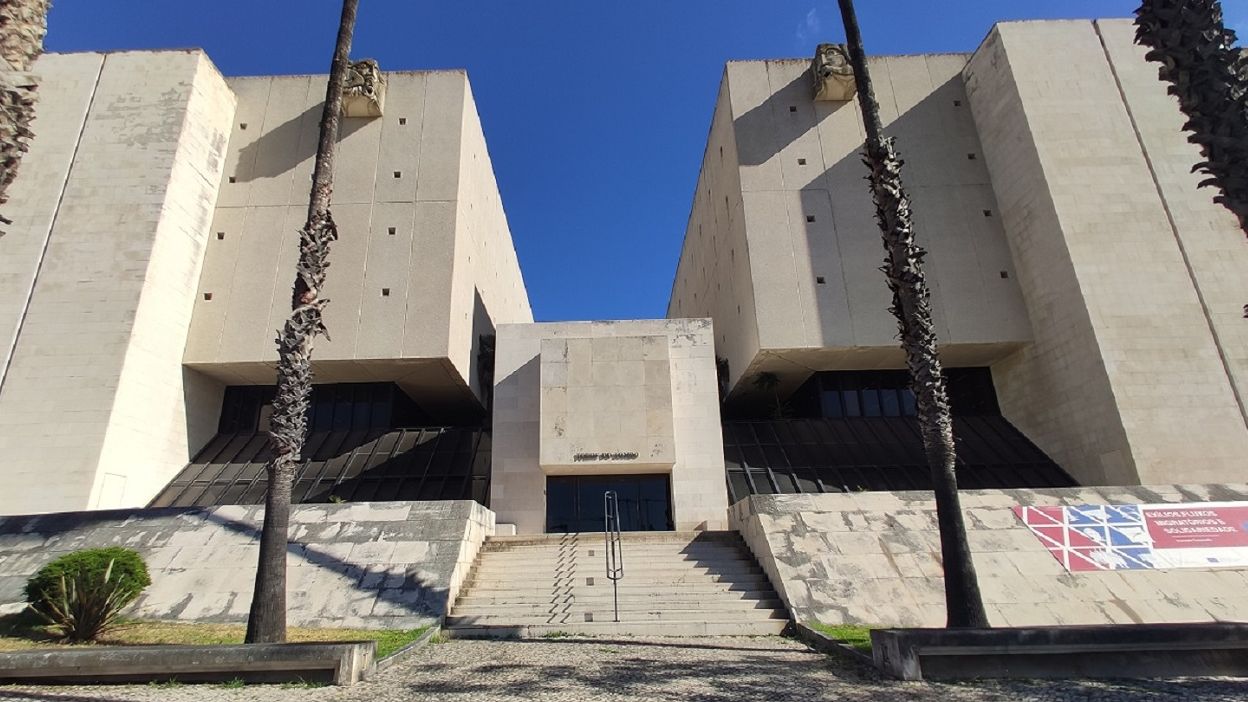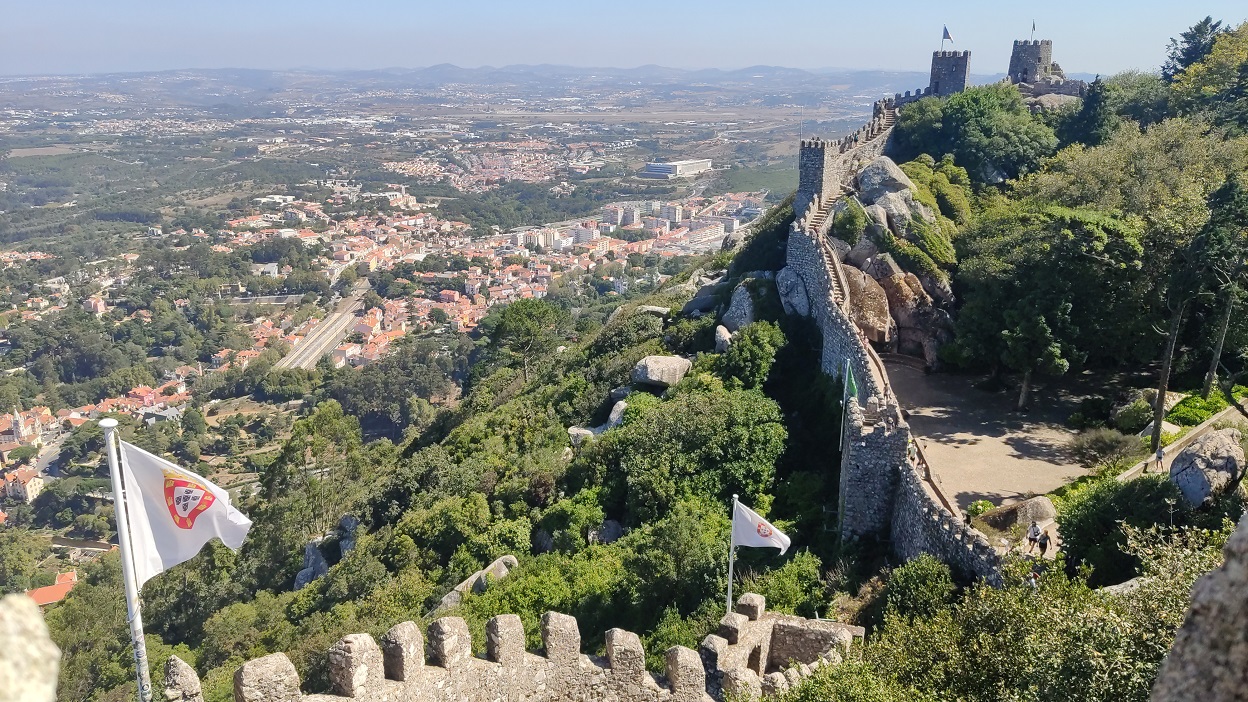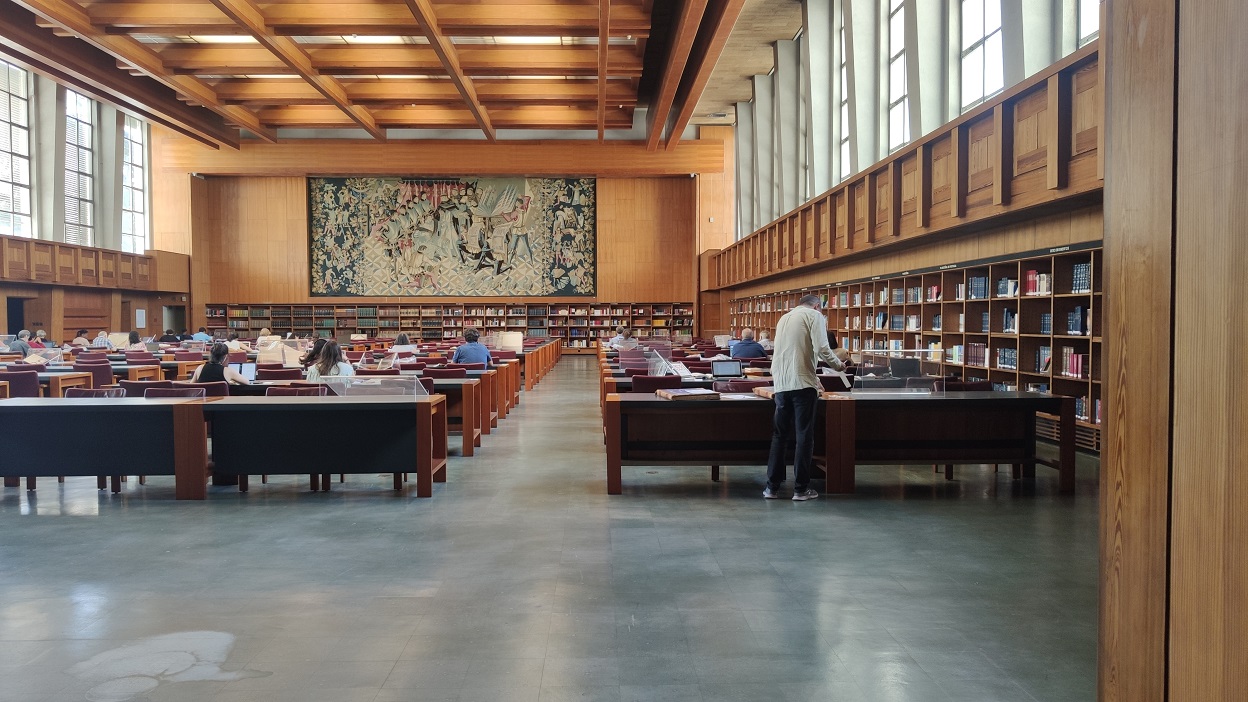Nélson Pereira Pinto
 Privat
Privat
Lisbon from Castelo de São Jorge
"My research stay in Portugal was made possible by the Gustav Schübeck Scholarship from the DAAD-Stiftung and was something quite unique for me, because it gave me the chance to expand my specialist knowledge and achieve important goals in my research project."
Nélson Pereira Pinto is studying for a doctorate in Iberian and Latin American History at the University of Cologne. His dissertation considers the informal and concealed political relations between Portugal and West Germany in the 1960s and 1970s. Amongst other things, the Gustav Schübeck Scholarship made it possible for him to conduct research in several archives and libraries in Lisbon and interview contemporary witnesses.
Here he provides a detailed account of his experiences and impressions in Portugal:
My dissertation topic is ‘Building a democracy under cover: West German influence on the political development of Portugal (1960s and 1970s)’, so from the very start it was important to me not just to refer to historical sources which can be found in German archives. My project focuses on the history of political relations between West Germany and Portugal in the 1960s and 1970s, so it is vital for me to examine documents in several archives in Portugal which would enrich the sources on which my research is based. This meant I would need to prepare for quite a long research stay in Portugal, so I applied to the German Academic Exchange Service for a stay in Portugal which would last from 1 June to 30 September 2022.
Getting organised
Financial support from another foundation had already made it possible for me to go on a short visit to Portugal from 28 February to 21 March 2022. This meant that I had been able to familiarise myself with the archives in Lisbon even before I started my DAAD-Stiftung stay. This proved particularly useful in the long term because it helped me to gain a better view of which sources were relevant to my research, which were not and where I needed to conduct further research. As such, I was able to plan my work before I even started my DAAD-Stiftung stay in Portugal, which managed my time while I was there. Thanks to knowing the archives and libraries in which I needed to conduct further research, I was able to target my work during the period of my Gustave Schübeck Scholarship from early June until the end of September 2022.
Personal impressions of my DAAD-Stiftung stay in Portugal
During my four months in Portugal I set myself a number of small targets which contributed to expanding my source material, conducting interviews with contemporary witnesses and networking with other academics and researchers. Despite my plans, I stayed flexible and took time for leisure activities, yet I was still able to achieve far more during my time in Portugal than I had originally intended.
The contacts I made with other researchers and academics generated synergies which provided an additional boost to my doctoral thesis. Making contact with Rui Lopes and the Fundação Mário Soares e Maria Barroso proved to be particularly constructive. Rui Lopes is an expert in Portuguese-West German relations in the 1960s and 1970s. He gave me useful tips which I could take into consideration during my later research in the archives. Filipe Guimarães da Silva and Pedro Marques Gomes from the Fundação Mário Soares e Maria Barroso showed particular interest in my project. Independently of my doctoral thesis, Pedro Marques Gomes persuaded me to write an academic essay in Portuguese on Portuguese migration to West Germany.
In addition to this, Filipe Guimarães da Silva arranged for me to meet Fabian Schmiedel, who chairs the Friedrich Ebert Foundation in Lisbon. This led to my involvement in a public history project to mark the 50th anniversary of the foundation of the Socialist Party of Portugal, Partido Socialista, after my DAAD-Stiftung stay. The Friedrich Ebert Foundation (FES) provided essential support for the foundation of the creation of the Partido Socialista at Bad Münstereifel in 1973, and, in the light of my doctoral thesis topic, this event represents a high point in the informal political relations between political actors from West Germany and Portugal. As such, being involved in the public history project run by FES and Fundação Mário Soares e Maria Barroso and the opportunity to network with experts from the foundation proved helpful.

Privat
Arquivo Nacional da Torre do Tombo
I would also like to mention the archivists who were always friendly to me and made sure I quickly understood how the archives and libraries were structured. Thanks to their efforts and a little small talk now and then about my project, a congenial working atmosphere generally prevailed. Furthermore, people were always happy to accommodate my requests. One thing I particularly liked was being able to print for free in the Arquivo da Defesa Nacional (as long as it was a limited number of copies).
Unlike many other PhD students, I spent four months in Portugal independently of other universities. That meant I did not have an official partner university. As such, in terms of organising everything and my working hours, I was independent and left to my own devices. I did not have my own office, so I mainly worked in the archives and libraries, although I did occasionally work from home. Portuguese is one of my first languages and I was already very familiar with the Universidade Nova de Lisboa thanks, among other things, to an Erasmus stay there in the 2012/2013 winter semester. As such, I was able to get on with my work in Portugal without any problems, which emerged as one of the key benefits for me.
Although the Covid-19 pandemic had not yet been overcome, there were no restrictions on access to the libraries and archives, which allowed me to gather a lot of source material. While I was in Portugal I even saw how the requirement to wear a mask on public transport was dropped. I hardly made any use of digital applications such as Zoom, apart from talking to my supervisor at the University of Cologne.
Organising my free time
Although I followed my work plans and was very productive, I still had enough time to enjoy a wide range of leisure activities. I played sports occasionally and took part in cultural events and festivals such as the Festa de Santo António. Occasionally I visited other cities such as Porto and the Algarve to see relatives.

Privat
Castelo dos Mouros
Lisbon has a great many beautiful neighbourhoods and sights, of which Alfama and Castelo de São Jorge deserve particular mention. I would also recommend the Cristo Rei statue and the Elevador Panorâmico da Boca do Vento (in Almada), and Belém and Cascais outside Lisbon. I also took several trips to Sintra to see sights such as the Quinta da Regaleira, the Castelo dos Mouros and the Parque und Palácio de Monserrate. While I already knew most of these sights, it is still always a special feeling for me to return to this place.
Conclusions
I really enjoyed my research in Lisbon and the surrounding areas thanks to the Gustav Schübeck Scholarship. By taking part in many different activities and taking much more time for meals, I felt full of energy in Portugal. Thanks to drawing up detailed work plans before I started my stay in Portugal, I enjoyed a fairly good work-life balance. It was often the case when I was working on a task that time actually seemed to be going by more quickly.
I am very grateful to the DAAD-Stiftung for the Gustav Schübeck Scholarship which gave me the opportunity to spend four months in Portugal. Looking back, I was able to acquire additional source material for my doctoral theses, conduct important interviews and expand my academic network, amongst other things. Through my DAAD-Stiftung stay in Portugal from early June to late September 2022, I was able to achieve several goals which together made a positive impact on my doctoral thesis and gave a boost to the associated developments.
I will soon return to Portugal to follow up on some areas of research before I submit my dissertation. My next stay in Portugal has already been planned.
Tips and advice for anyone who wants to discover Lisbon and the surrounding areas:
• A monthly pass from Transportes Metropolitanos de Lisboa costs €40 and is well worth it. You can use the pass on all public transport including trains, buses, trams, ferries and much more in and around Lisbon. Ideally it is worth arranging one in advance so you can use it as soon as you arrive.
• If you work with a lot of library books, I would recommend getting a card from the Biblioteca Nacional de Portugal. You can also get a student card from the Universidade de Lisboa which gives you access to all its learning and workspaces.

Privat
Biblioteca Nacional de Portugal
• As a city Lisbon is not well suited to bike riders. That said, there are many different forms of transport which you can rely on and will get you where you want to go.
• Nowadays Portugal is not just one of the most popular destinations for tourists from around the world. It is also becoming more and more attractive for international investors. While this does create more temporary jobs, particularly during the summer season, it is also leading to a constant rise in rents and the price of goods, something which is causing particular suffering for the local population. If you want to avoid expensive prices for accommodation, it is worth looking out for options on the other bank of the Tajo. I stayed in Laranjeiro in Almada, which is on the other bank of the Tajo, and I often took the train or the ferry across to Lisbon. The ferry from Cacilhas in Almada to Cais do Sodré in Lisbon took less than ten minutes.
• People usually eat lunch between 12.30 and 2 p.m. In Portugal, and it’s worth bearing this in mind. If you want to eat lunch after 2 p.m. you run the risk of getting nothing in the canteens or restaurants. Lunch in a restaurant, consisting of a main course, a drink and dessert or coffee will cost you up to about €10. If you eat in a canteen, the menu will usually consist of a main course, soup, a drink and an espresso, and it will cost you less than €5. Lunchtimes and going out for a coffee are often a good chance to meet other people. During these times I was able to share ideas and enjoy interesting conversations about a range of research projects with academics, researchers and archivists.
On "orte der demokratie geschichte" is an article written by Mr. Pereira Pinto about the Partido Socialista (PS) (in German).
As of February 2023. The German version is the original.


